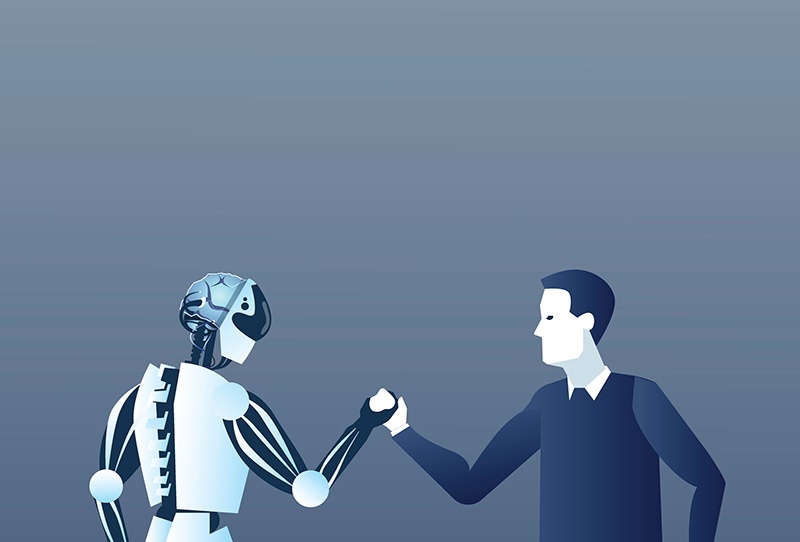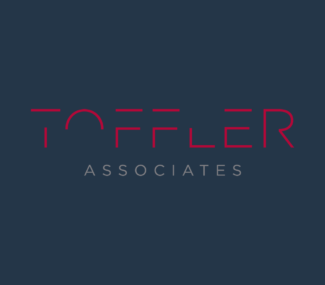How to Engage AI in Organizational Decision Making

In his 1954 publication, The Functions of the Executive, retired telephone executive Chester Barnard introduced the action-oriented term “decision making” into the lexicon of the business world.[1] The specificity behind the word “decision” prompted managers and leaders to rethink the discipline of achieving better outcomes as one that engaged approaches ranging from philosophy, mathematics, sociology, psychology, economics, and political science.
Since that time, leaders have endured – and in many cases, caused – change in their organizations, marketplaces, and industries that have demanded constant revision to the decision making process. While the principal objective remains better outcomes, the approach to reaching those outcomes looks little like it did in the last century. Most notably, the predominance of data and the Artificial Intelligence (AI) that’s working to parse it all have shifted organizational resources and roles dramatically.
The Ego and the AI
There’s no question that throughout history, humans have pursued effective, efficient, confident decisions. While models and information resources have changed, many things have not. Namely, information and ego are two sides of the proverbial coin that gets flipped over and over. We strive for rational thinking that considers multiple perspectives and options. We perform techniques like A/B testing to gain peace of mind in the approach. We war game to consider alternate possibilities. We judge, iterate, ideate, posit, argue, and compromise – all in the name of reaching an outcome.
What if leaders could take egos out of the equation? What if we could amass all of the details necessary without the risk of ‘choice paralysis’ or ‘paralysis by analysis’? What if information-based technologies could solve both those issues?
As a strategic advisor, I have come across a plethora of client challenges. Reduction of waste in a process. Improving morale. Overcoming excess cost. Every organization feels the press of opportunity and difficulty in a unique way. But across all of these leaders and scenarios lies one fundamental denominator – business leaders face an unrelenting challenge of knowing which decision to make.
The inherent paradox in driving innovation is that as your system becomes technologically advanced, it generates exponentially more questions that need to be answered. Here’s one key area in which AI is making a notable impact on organizational decision-making. First and foremost, AI engages cognitive computing and autonomous learning – not ego. With it, we get assisted intelligence and automation – allowing the technology to handle basic tasks so attention can be put to decisions that demand more reasoning and judgment. We get augmented intelligence – higher-level insight into complex scenarios.[2]
In the years to come, organizations will see a continued integration of these tools and new capabilities coming to bear. As that happens, trust will be a forefront issue, and the role of human judgment will evolve – in some respects (EQ) becoming more important, and in others (IQ) becoming irrelevant.
I offer up three primary thoughts to executive leaders beginning to integrate AI into their decision processes:
- Outsource the mundane to AI.
There is no reason we shouldn’t trust or allow AI capabilities to do the work no one else wants to do. To some extent, you likely already are with your back office efforts. Keep finding those low-risk areas to build trust and reliability into your AI practice. - Leverage AI to build performance indicators.
Most leaders struggle with defining key performance indicators and fail to use them consistently for growth. AI can learn faster and use variables and inputs far quicker than a human can. Use this to your organization’s advantage. - Consult AI as a tool and not a toolbox.
AI is not the end-all-be-all. It is yet one more tool to consult to verify judgment and gut reactions. Use it to model, build scenarios, and its structured algorithmic capability to inform and enhance, not to decide and justify.
For those who fear that an overabundance of information, algorithms, and AI are undermining the value of the human voice, I offer encouragement. This new normal is a tough pill to swallow. Mistakes will happen. At times, the machine will have the last word. But leaders need to enable the AI and the organization to share authority and accountability. As has been the case throughout history, this is a process that will require iterations, mistakes, and innovations. That’s okay – those all are parts of progress. You just have to decide how you want to proceed.
It’s time to decide the role people and AI will take in your action planning, and pursue progress.
{{cta(‘5f5aaf5c-39c6-4763-8891-2cee93f8c351’)}}
[1] http://www.hup.harvard.edu/catalog.php?isbn=9780674328037
[2] “How Artificial Intelligence Will Change Decision-Making for Businesses.” BecomingHuman.AI


 About the Authors
About the Authors